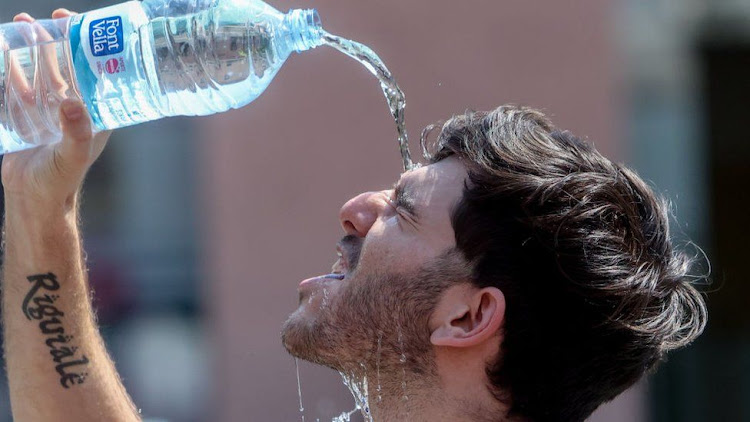
A severe heatwave in Western Europe is shattering temperature records – including in the United Kingdom, where temperatures on Tuesday for the first time on record.
The village of Coningsby in eastern England 40.3 degrees – provisionally the hottest temperature in UK history. The record was previously held by Cambridge, which reached 38.7℃ in 2019.
I’m a scientist interested in climate change and extreme weather. I grew up in the UK and remember major heatwaves in 2003 and 2006 during my school holidays.
Traditionally, temperatures above 30℃ in the UK are considered hot. But to see temperatures already exceeding 40℃ is shocking.
Summer heat may be far from people’s minds here in Australia. But Europe’s ordeal is yet another sign that changes in Earth’s climate have already reached dangerous levels. If the UK can reach 40℃, Australia must brace for even deadlier temperatures.
Europe’s heatwave spread across Spain, Portugal and southern and western France, before a strong southerly wind fanned continental air across the English Channel. Background warming due to climate change boosts the odds of such severe heat.
In 2020, a UK Met Office found under the current climate, there was likely a less than 1% chance of seeing 40℃ anywhere in the UK in a given year. Without human-caused climate change it would be virtually impossible.
The UK is simply not used to heat on this scale. In fact, buildings there are generally designed to retain heat rather than cool down. A last year found fewer than 5% of homes were air-conditioned.
Urban green space in the UK – which can help cool cities – has also in recent years.
The Met Office on Friday issued the first ever “red warning” which said “illness and death may occur among the fit and healthy, and not just in high-risk groups”. It advised people to:
Close curtains on rooms that face the sun to keep indoor spaces cooler and remember it may be cooler outdoors than indoors. Drink plenty of fluids and avoid excess alcohol, dress appropriately for the weather and slow down when it is hot. Be on the lookout for signs of heat related illness. Cool your skin with water, slow down and drink water.
The death toll from the current heatwave is not yet known, but experts it could be in the thousands across Europe.
